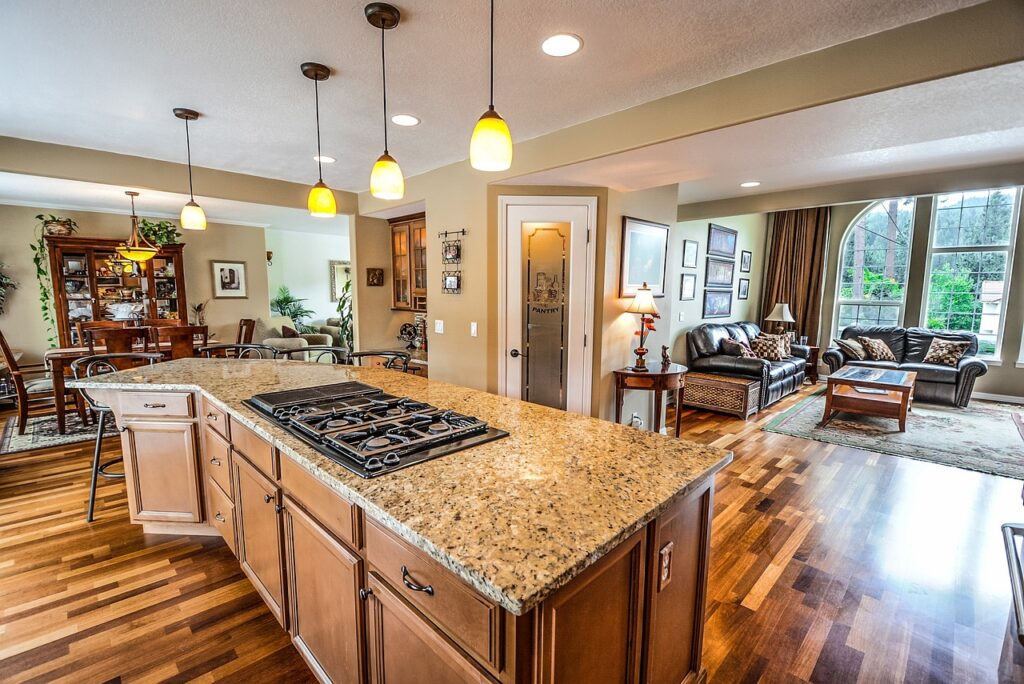Kitchen remodeling contractors specialize in updating and improving kitchen spaces to enhance both functionality and style. They manage everything from design and material selection to installation and finishing touches, making the renovation process more manageable for homeowners. Hiring a skilled contractor ensures the project is completed efficiently, on budget, and to the desired quality.
A professional contractor brings expertise in layout optimization, permits, and coordinating with subcontractors, which helps avoid common pitfalls. They also provide personalized solutions tailored to the client’s needs and lifestyle, transforming ideas into practical results.
Choosing the right kitchen remodeling contractor can save time and reduce stress, allowing homeowners to focus on enjoying their upgraded space once the work is done. Reliable contractors often have reviews, portfolios, and experience that demonstrate their ability to deliver successful kitchen transformations.
Choosing the Right Kitchen Remodeling Contractors
Selecting the right kitchen remodeling contractor requires careful attention to key details that affect project success. Important factors include verifying legal credentials, examining past work, and gathering feedback from previous clients. Each element helps ensure the contractor can deliver quality results within budget and timeframe.
Credentials and Licensing
Contractors must hold the proper licenses to work legally in their area. Licensing confirms they meet local building codes and safety standards. It also often requires passing exams or proving experience.
Insurance is equally crucial. Contractors should carry liability insurance to cover accidents or damage during the remodel. Workers’ compensation protects homeowners from financial responsibility if a worker is injured on site.
Verifying warranty offers and membership in professional organizations can further indicate a contractor’s commitment to quality. Always request copies of licenses and insurance certificates before hiring.
Evaluating Portfolios
A contractor’s portfolio provides concrete evidence of their capabilities. A thorough portfolio includes photos and descriptions of completed kitchen remodels, showcasing style variety and craftsmanship.
Look for projects similar in complexity and size to the planned remodel. Attention to detail, finishes, and material choice should be clear. This helps gauge if their aesthetic aligns with client expectations.
Contractors able to demonstrate problem-solving skills in unique or challenging spaces add value. Reviewing before-and-after images allows a more accurate assessment of their impact.
Client Reviews and References
Online reviews reveal patterns in reliability, communication, and workmanship. Multiple positive reviews increase confidence in a contractor’s professionalism and quality.
Request direct references from recent clients to discuss experiences firsthand. Ask about adherence to timelines, budget management, and how issues were handled.
Negative feedback can be informative if accompanied by evidence of resolution. Verifying references helps avoid contractors with consistent complaints or poor customer service.
Key Considerations for Your Kitchen Remodel
A successful kitchen remodel requires careful planning of finances, time, aesthetics, and ongoing communication. Addressing these elements early helps avoid costly delays and design compromises.
Budget Planning
Setting a clear budget is the foundation of any kitchen remodel. It should cover all costs from materials and labor to unexpected expenses. Homeowners often allocate between 10% to 15% of their home’s value, but individual budgets vary based on scope and quality desired.
Contractors should provide detailed estimates, breaking down categories like cabinetry, appliances, plumbing, and permits. Including a contingency fund of around 10-20% for unforeseen costs is recommended. Tracking expenses regularly prevents overspending and helps adjust plans if needed.
Project Timeline
A realistic timeline depends on the project’s complexity and contractor availability. Typical kitchen remodels take between 6 to 12 weeks, encompassing demolition, plumbing, electrical work, installation, and finishing.
Delays often stem from supply chain issues or unexpected repairs. Planning buffer time allows handling such setbacks without rushing quality or incurring added costs. Clear milestones and deadlines should be established before work begins.
Design and Material Selection
Functional design should align with the homeowner’s cooking habits and lifestyle. Efficient layouts such as the work triangle improve usability. Choices in cabinetry, countertops, flooring, and appliances must balance aesthetics, durability, and maintenance.
Selecting materials requires researching quality and cost. For example:
| Material | Durability | Maintenance | Cost |
| Quartz Counter | High | Low | Moderate |
| Laminate | Moderate | Moderate | Low |
| Hardwood Floor | Moderate | High | Moderate-High |
Consulting the contractor early about available brands and options ensures compatibility with the design and budget.
Communication and Project Management
Clear, consistent communication with the contractor minimizes misunderstandings. Both parties should agree on the scope, budget, and schedule before starting. Regular updates and site inspections help track progress and address issues promptly.
Using project management tools or apps enhances transparency. Documenting all decisions and changes in writing protects against disputes. Homeowners should expect their contractor to coordinate subcontractors and manage permits effectively.



